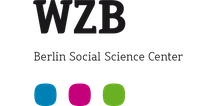Manifesto Corpus Conference 2018
1-2 Februar 2018
WZB Berlin Social Science Center, Germany
Manifesto Research on Political Representation (MARPOR)
manifesto-conference@wzb.eu
Conference Organizers: Pola Lehmann, Theres Matthieß, Nicolas Merz, Sven Regel
Registration: Please register for the conference until January 22, 2018 via manifesto-conference@wzb.eu
Conference Program (pdf)
Call for Papers (pdf)
The Manifesto Project team invites users of the Manifesto Corpus to submit abstracts and papers for a conference on 1-2 February 2018 to be held at the WZB Berlin Social Science Center in Berlin, Germany.
The Manifesto Project and its data collection have had a strong influence on research on political parties in the last several decades. For the past thirty years the general purpose of the Manifesto Project has been to measure political preferences of parties across time and space. The project has been funded by the German Research Foundation since 2009 under the name 'Manifesto Research on Political Representation (MARPOR)' - in former times it was run under the names 'Manifesto Research Group (MRG)' and 'Comparative Manifestos Project (CMP)'. The project's Manifesto Dataset offers data on party preferences on specific issues and overarching policy scales for parties from 1945 until today in over fifty countries.
The creation of the Manifesto Corpus has been the most significant recent innovation by the project. The Manifesto Corpus is a digital open-access multilingual annotated corpus of electoral programs, based on the collection of the Manifesto Project - which comprises the largest collection of annotated electoral programs currently in existence. It covers 2,195 pdf documents, 2,191 machine-readable texts and 1,013 digitally coded documents from more than 40 different countries, in more than 30 languages, and with more than 850,000 human annotated statements.
The aim of the conference is to bring together scholars who use the Manifesto Corpus from the social sciences, linguistics, communication studies and computer science, and to foster a dialogue between users and the core team. The conference offers participants the opportunity to present current projects that use the Manifesto Corpus.
In particular we are looking for contributions that
- Make innovative use of the Manifesto Corpus for substantial research on political parties, political science in general, communication studies or linguistics.
- Apply existing semi or fully automated content analytic methods to the Manifesto Corpus, and develop new tools or improve existing methods in content analysis using the Manifesto Corpus.
- Train and validate a classifier on the annotations of the Manifesto Corpus to code new documents.
- Advance the methodological debate on the Manifesto Corpus and the Manifesto Data in general.
Manifesto Corpus Award:
The paper with the best and most innovative application of the Manifesto Corpus presented at the conference will receive an award and 1,000€ in prize money. To be eligible for the award, the abstract need to be selected by the conference committee and the paper must be submitted before the paper submission deadline.Award Committee: Pola Lehmann, Christian Rauh, Natalie Widmann
Award Winners:
- Jae-Hee Jung (Washington University, St. Louis): "The Mobilizing Effect of Parties' Moral Rhetoric"
- Stefan Müller (Trinity College Dublin): "Prospective and Retrospective Salience"
Keynote Speaker:
Margaret E. Roberts: "How to Make Causal Inferences with Text"Discussants:
Svenja Krauss, Gijs Schumacher, Denise Traber, Mariken van der Velden, Kohei Watanabe, Annika Werner, Malisa ZobelSubmission:
Please submit an abstract of max. 300 words with a paper title, 3-5 keywords, and the name and affiliation of all authors to manifesto-conference@wzb.eu.Deadlines:
- (passed) Deadline for abstract submission: 2 October 2017
- (passed) Notification of acceptance: 13 October 2017
- (passed) Deadline for paper submission: 22 January 2018




